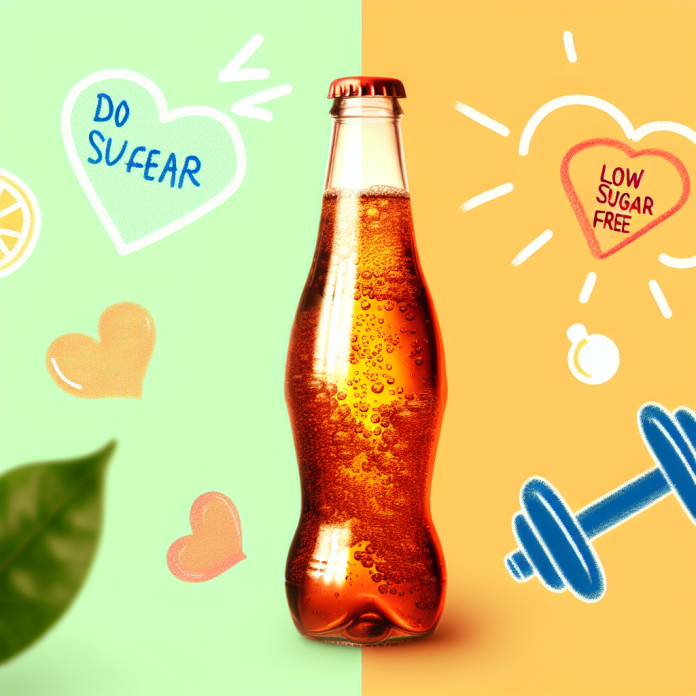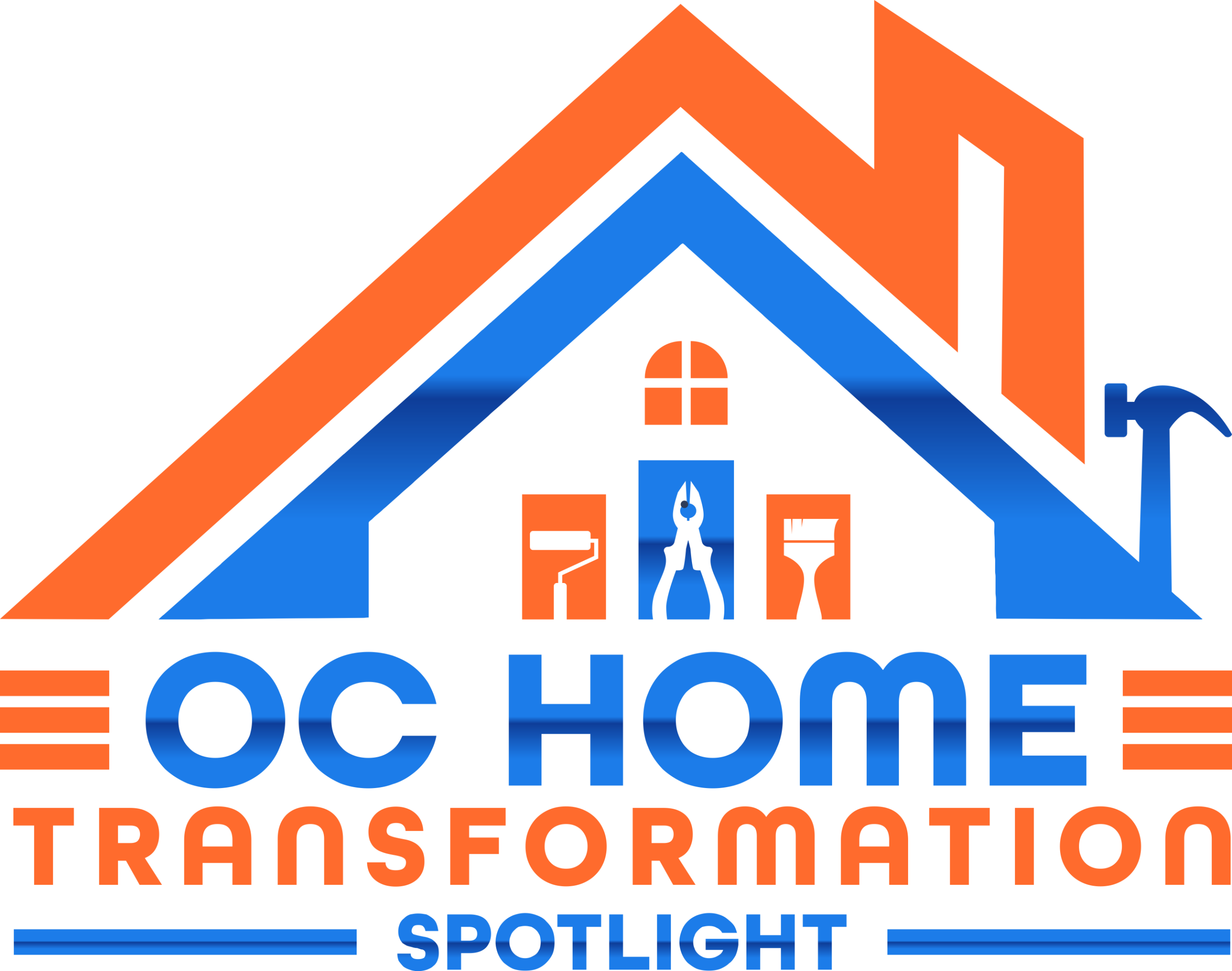Low sugar soft drinks are making waves in the beverage industry as health-conscious consumers shift their preferences towards healthier options. With the growing popularity of products like Coca-Cola Zero Sugar, more people are opting for no sugar beverages that offer the classic taste without the guilt. These diet soft drinks not only cater to those watching their sugar intake but also align with the latest soda health trends prioritizing wellness and moderation. Remarkably, the sales figures reflect this change, as low and no-sugar options are experiencing significant growth, even outpacing traditional sugary sodas like Cane Sugar Coke. As consumers become more informed about their choices, the demand for low sugar soft drinks is expected to rise, influencing how major brands formulate their products.
In today’s market, alternative beverages that minimize sugar content are increasingly becoming a staple for many consumers. This shift towards healthier soda options reflects a broader trend in dietary choices, with many preferring beverages that avoid traditional sweeteners altogether. With names like Coca-Cola Zero Sugar leading the charge, these refreshing drinks are vying for attention amid rising health concerns associated with excess sugar consumption. Moreover, the growth in popularity of diet soft drinks is not just a fleeting fad; it’s a significant part of a cultural evolution towards more nutritious beverage selections. As consumers continue to seek alternatives to traditional sodas, it’s clear that low sugar options are reshaping the landscape of soft drink consumption.
The Rise of Low Sugar Soft Drinks
In recent years, the demand for low sugar soft drinks has surged dramatically, reflecting a broader trend towards healthier lifestyle choices. Consumers are increasingly aware of the health implications associated with excessive sugar consumption, leading to a significant shift in their beverage preferences. Major brands are responding to this demand by expanding their portfolios to include a variety of no sugar beverages, catering to health-conscious individuals who still crave the familiar taste of soda without the added sugars.
One prime example of this trend is Coca-Cola Zero Sugar, which was introduced to the market to provide an alternative for those wanting to avoid sugar without sacrificing flavor. The beverage has become a key player in the diet soft drinks category, contributing to a growing segment that prioritizes lower-calorie options. As such, Coca-Cola and other producers are learning that consumers are willing to pay a premium for products that align with their health-oriented values, thus fostering innovation in the soft drink industry.
Coca-Cola’s Transition to Healthier Ingredients
The ongoing discussions about Coca-Cola’s potential switch from high-fructose corn syrup to cane sugar have heightened consumer interest in the ingredients that sweeten their favorite drinks. While high-fructose corn syrup has been a staple sweetener for decades, rising health concerns have led Coca-Cola to explore healthier alternatives. This scrutiny is part of a larger conversation about the benefits of low sugar soft drinks and their role in modern nutrition, particularly as public health campaigns encourage reductions in sugar intake.
Although there is skepticism regarding Coca-Cola’s complete transition to cane sugar, the company remains committed to improving its product line to meet consumer demands for healthier options. The success of no sugar beverages like Coca-Cola Zero Sugar illustrates that consumers are eager to adopt alternatives that don’t compromise on taste. This pivot embodies a broader movement in the beverage industry as companies reassess their sweetener choices and product direction to prioritize consumer health.
Market Impact of Diet Soft Drinks
The proliferation of diet soft drinks, particularly those offering low or no sugar, has initiated a significant impact on the beverage market. Brands like PepsiCo report that 60% of their sales volume now comes from products categorized as low- or no-sugar, signifying a robust shift in consumer demand. This trend is compelling traditional soda manufacturers to innovate heavily in order to capture the growing market share of health-minded consumers who still wish to indulge in soft drinks.
Market research has indicated that Coke Zero Sugar is one of Coca-Cola’s fastest-growing products, outperforming original coke in terms of growth percentage. With health-focused brands emerging and gaining popularity, classic sodas are increasingly viewed as less desirable options. The overall trend is moving towards beverages that consumers perceive as healthier, creating a competitive landscape where legacy brands must adapt to remain relevant.
Consumer Preferences and Soft Drink Trends
Consumer preferences in the soft drink industry are indeed shifting towards healthier choices, fueled by growing awareness of nutrition and wellness. Innovations like Olipop, which contains significantly lower sugar levels compared to traditional sodas like Coke, are reshaping what consumers expect from their beverages. This trend aligns with emerging studies indicating a preference for drinks that don’t compromise health for enjoyment, signaling a potential decline in full-sugar soda consumption.
As consumers evaluate their diets, diet soft drinks have become a desirable alternative, particularly among health-conscious individuals who wish to limit their sugar intake. Moreover, the latest dietary guidelines reinforce the need for reducing sugar consumption across all demographics, especially for children. This context further emphasizes the shift toward low sugar soft drinks, as more options become available to meet the demand for healthier beverages.
Coca-Cola’s Competitive Positioning in the Market
Coca-Cola’s positioning within the beverage market has been increasingly defined by its embrace of low sugar soft drinks. Despite the flagship Coca-Cola often dominating the market, the rapid ascent of Coca-Cola Zero Sugar demonstrates that consumers are drawn to products that align with their dietary choices. This strategic pivot not only addresses health trends but also helps the brand maintain its relevance in an increasingly diverse soft drink market.
The competition for market share is fierce, and Coca-Cola must effectively communicate the benefits of its no sugar beverages to potential customers. With PepsiCo also leaning heavily into the low and no-sugar segment, Coca-Cola’s ability to innovate and diversify its product offerings will be paramount in maintaining its edge over competitors. Understanding consumer behavior and adapting to these preferences allows Coca-Cola to carve out a distinct niche even as the landscape evolves.
Health Considerations Related to Soft Drink Consumption
While soft drinks have long been a staple of American culture, ongoing health discussions have put the spotlight on their long-term impacts. Experts indicate that the shift towards low sugar soft drinks is not merely a preference, but a necessity driven by concerns over obesity and the risks of sugar-related health conditions. Diet soft drinks, particularly those containing no sugar, provide an essential alternative for individuals looking to satisfy their carbonation cravings without high-calorie intake.
However, it’s crucial to note that not all consumers view artificial sweeteners as a panacea for health issues. Some reports have raised questions regarding the safety of ingredients like aspartame used in many diet sodas. This dichotomy emphasizes the importance of transparency in labeling and educating consumers about the relative risks and benefits of various sweeteners used in soft drinks. As health guidelines continue to recommend limiting added sugars, the industry must navigate the complexities of consumer perceptions and dietary needs.
Examining the Nutritional Value of Soft Drinks
As public health initiatives focus on improving dietary habits, the nutritional value of soft drinks has come under scrutiny. Traditional sodas are notorious for their high sugar content, with original Coca-Cola containing an staggering 65 grams of sugar per serving. In contrast, low- and no-sugar beverages, such as Coca-Cola Zero Sugar, are marketed as healthier alternatives without the empty calories. This shift marks a pivotal moment in how consumers perceive soft drinks and their place in a balanced diet.
However, even with low sugar soft drinks gaining favor, nutritionists caution that consumers should not ignore the potential downsides of artificial sweeteners. The conversation regarding the health impacts of sweeteners like aspartame remains ongoing, requiring consumers to stay informed about their implications. Ultimately, the beverage industry is faced with the challenge of delivering options that not only taste good but also support public health goals.
The Future of Soft Drinks in a Healthier Market
Looking ahead, the future of soft drinks will likely be defined by an ongoing evolution towards low and no sugar options. With more brands entering the market and consumer awareness of nutritional ingredients becoming increasingly relevant, traditional soda manufacturers must adapt to retain customer loyalty. As the trend towards health consciousness continues, companies that can innovate and market their low sugar beverages effectively will have a competitive advantage.
Additionally, the shift in consumer preferences signifies a broader trend in the food and beverage industry as consumers demand clean labels and transparency regarding ingredients. This growing scrutiny offers a unique opportunity for soft drink producers to engage with their audience and build trust by sharing information about sweeteners and their sourcing. By embracing this consumer-driven approach, the future of soft drinks can promote good health while satisfying the cravings that many feel for carbonated beverages.
Navigating Consumer Concerns in Soft Drink Production
As Coca-Cola and other soft drink manufacturers navigate the complexity of consumer concerns regarding sugar and sweeteners, it becomes vital to maintain open dialogue and educate the public. Growing skepticism about artificially sweetened products has prompted brands to rethink their marketing strategies and ingredient choices. The key challenge is to ensure that health-conscious consumers feel secure in their choices and that the products they enjoy support their well-being.
Transparent labeling and educational campaigns about the safety of key ingredients such as high-fructose corn syrup and artificial sweeteners could bolster consumer trust. By actively addressing common misconceptions and promoting informed choices, Coca-Cola and similar brands can foster a loyal customer base that appreciates both flavor and healthfulness in their beverage options.
Frequently Asked Questions
What are low sugar soft drinks like Coca-Cola Zero Sugar?
Low sugar soft drinks, such as Coca-Cola Zero Sugar, are beverages that contain little to no sugar while maintaining a similar taste profile to their full-sugar counterparts. Coca-Cola Zero Sugar uses artificial sweeteners like aspartame and natural sweeteners like stevia, making it a popular choice among consumers looking to reduce their sugar intake.
How do low sugar beverages compare to full-sugar sodas?
Low sugar beverages, including diet soft drinks like Coca-Cola Zero Sugar, typically contain fewer calories than full-sugar sodas. While full-sugar sodas may contain high amounts of cane sugar or high-fructose corn syrup, low sugar options are designed to satisfy sweet cravings without the added sugars that contribute to obesity and other health concerns.
Why are consumers shifting towards no sugar beverages?
The shift towards no sugar beverages, such as Coca-Cola Zero Sugar, is driven by increasing health consciousness among consumers. Many are seeking alternatives that help them reduce calorie intake and avoid added sugars, especially as health guidelines recommend limiting sugar consumption to promote overall wellness.
Are diet soft drinks like Coca-Cola Zero Sugar healthier?
Diet soft drinks like Coca-Cola Zero Sugar can be considered healthier alternatives to regular sodas since they contain little to no added sugars and fewer calories. However, health experts advise moderation and suggest reading labels, as some artificial sweeteners may also have potential health concerns.
What are the latest trends in soda health related to low sugar soft drinks?
Recent soda health trends indicate a growing consumer preference for low and no sugar beverages, such as Coca-Cola Zero Sugar and other diet soft drinks. These products have gained market share as public awareness of sugar-related health issues rises, prompting beverage companies to innovate and expand their low sugar offerings.
How do artificial sweeteners in low sugar sodas like Coca-Cola Zero Sugar affect health?
Artificial sweeteners used in low sugar sodas like Coca-Cola Zero Sugar, such as aspartame and stevia, provide sweetness without calories. While many consider them safe, ongoing research and differing opinions in nutrition science call for consumers to stay informed and consider personal health advice when choosing these drinks.
What is the market performance of low sugar drinks versus traditional sodas?
The market performance of low sugar drinks, like Coca-Cola Zero Sugar, shows significant growth, outperforming traditional sodas. Reports indicate that low or no-sugar drinks have larger sales volumes in key markets, as consumers increasingly prefer healthier beverage options.
Can low sugar beverages like Coca-Cola Zero Sugar aid in weight management?
Low sugar beverages like Coca-Cola Zero Sugar can aid in weight management by providing a sweet taste without the high caloric content of sugar-filled sodas. This can help satisfy cravings without the added calories that contribute to weight gain, making them a popular choice among those monitoring their weight.
| Key Points |
|---|
| Consumers are increasingly demanding low- and no-sugar soft drinks. |
| Coca-Cola Zero Sugar launched in 2017, is one of Coca-Cola’s fastest-growing products, growing globally by 14% in Q1. |
| PepsiCo reported 60% of its sales volumes in key markets are from low or no-sugar drinks. |
| Coca-Cola is considering a switch to cane sugar for its regular U.S. beverage, but no confirmation has been made. |
| The Corn Refiners Association criticized the switch, citing potential job losses. |
| Nutritionists advise against added sugars due to empty calories; guidelines recommend limiting sugar for children under 2. |
Summary
Low sugar soft drinks are becoming increasingly popular as consumers seek healthier beverage options. This trend indicates a significant shift in consumer preferences away from traditional sugary sodas. Amidst rising health concerns, Coca-Cola Zero Sugar and PepsiCo’s no-sugar offerings are leading the market, showcasing the industry’s response to consumer demands. The discussion around sweeteners continues, with companies needing to navigate consumer desires for both taste and health-conscious choices in their products.
Source: https://www.ocregister.com/2025/07/17/trump-coca-cola-sugar/
# Transform Your Home with Orange County Remodeling: Elevate Your Space
## Discover the Best of OC Home Transformations
Orange County homeowners are investing in their living spaces like never before, seeking renovations that not only enhance their homes but also reflect the affluent lifestyle of the region. With the median home value in Orange County soaring to $1.18 million, the desire for high-value renovations—ranging from $50,000 to over $500,000—is on the rise. Contractors in cities like Laguna Beach, Newport Beach, Irvine, Costa Mesa, and Huntington Beach are uniquely positioned to capitalize on this demand, offering bespoke solutions that meet the specific needs of homeowners keen on transforming their properties into personal sanctuaries.
## Understanding OC’s Unique Remodeling Landscape
When planning a renovation in Orange County, it’s crucial to abide by California’s building codes and acquire the necessary permits. These regulations ensure that all alterations meet safety standards, offering peace of mind to homeowners and helping contractors avoid costly setbacks. The climate in OC—characterized by warm, sunny weather—also plays a significant role in design choices. For instance, homeowners might opt for energy-efficient materials and systems that take advantage of the sunny locale, thereby enhancing comfort while minimizing energy costs.
## Opportunities for OC Contractors
The growing demand for remodels presents a lucrative opportunity for contractors across Orange County. By specializing in high-demand services such as kitchen and bathroom renovations, outdoor living spaces, and eco-friendly upgrades, contractors can attract a diverse clientele seeking quality craftsmanship. Additionally, promoting effective communication about the costs and timelines involved in various projects can build trust with potential clients. Local suppliers for materials—including those certified for eco-friendly construction—can provide a competitive edge and support sustainable practices in remodeling projects.
### Engage Local Homeowners for Successful Outcomes
For OC contractors, establishing a strong local presence and engaging with the community can lead to fruitful outcomes. Hosting workshops or offering free consultations can not only showcase expertise but also foster relationships with affluent homeowners considering large-scale renovations. Emphasizing the synergy of local craftsmanship and quality service will set your business apart in a competitive market. Whether you’re an experienced remodeler or just beginning, the potential for growth in Orange County’s robust home renovation landscape is significant.
### Begin Your Renovation Journey Today!
If you’re a homeowner in Orange County ready to transform your living space, or a contractor looking to expand your business, now is the time to connect. Let’s work together to create beautiful, functional, and compliant spaces that enhance the unique spirit of OC living.


